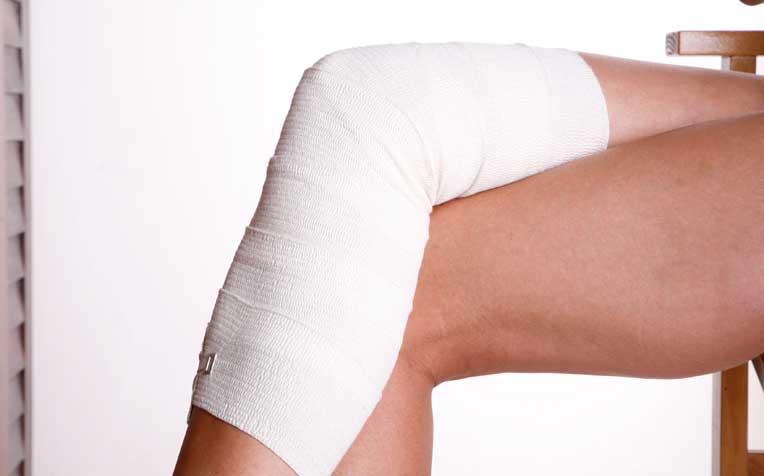
Compression stockings create a gentle pressure on the legs which prevent blood from pooling in the veins.
Treatment for varicose veins
Stripping (early surgical procedure)
One early surgical procedure to treat varicose veins is known as stripping, which involves general or half-body anaesthesia. The faulty veins are removed and blood flow directed through functioning veins. Stripping requires incisions to be made at the groin, inner thigh and calf. Patients typically are given up to two weeks of leave for recovery, during which they are encouraged to walk.
Endovenous laser therapy
Endovenous laser therapy uses a laser to burn the vein under local anaesthesia, allowing patients to literally walk home immediately after treatment.
Injection of foamed sclerosants
Another popular alternative is the injection of foamed sclerosants – liquid chemicals in bubble form – into the inner thigh to harden the vein. This minimally invasive and relatively painless procedure is also performed under local anaesthesia.
All the patient needs to do after undergoing either sclerosant injection or endovenous laser therapy is to take a few painkillers and wear graduated compression stockings for 30 days to aid recovery. These prescription tight-fitting below-the-knee, above-the-knee or pantyhose stockings create a gentle pressure on the legs which prevents blood from pooling in the veins and improves the results of minimally invasive treatments.
Procedure costs
Endovenous laser therapy typically sets private patients back $5,000 to $7,000 per leg, while foamed sclerosants cost slightly less. Of course, prices also depend on the ward class patients opt for.
Treatment outcomes
Results for either treatment have been encouraging. Post-treatment, most patients will find their varicose veins reduced in size and symptoms relieved. In 25 per cent of cases, varicose veins eventually completely disappear, said A/Prof Tan, Senior Consultant from the Department of Vascular Surgery from Singapore General Hospital, a member of the SingHealth group.
“Although most women are bothered by varicose veins and find them unsightly, they should not affect self-confidence,” said A/Prof Tan. “There is no need to be resigned to them as they can be easily treated.”
Ref: V10
Contributed by
Related Articles
Public Events
Get the Health Buddy App
© 2025 SingHealth Group. All Rights Reserved.















 Get it on Google Play
Get it on Google Play